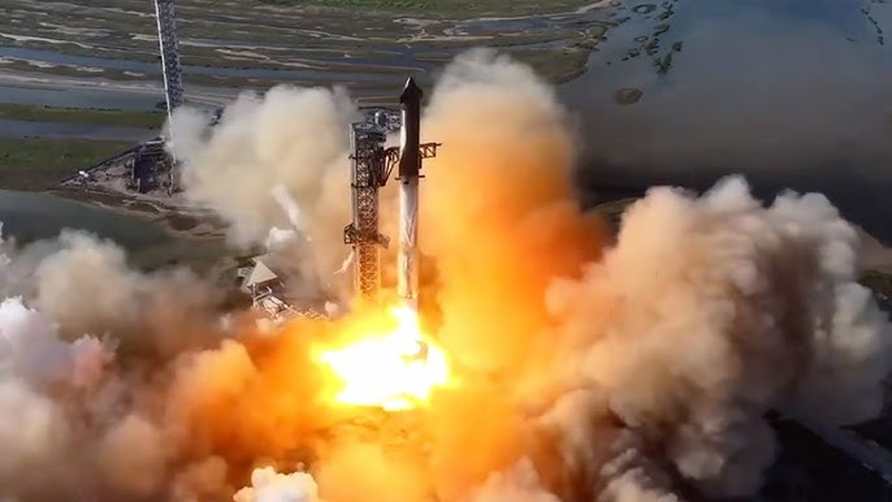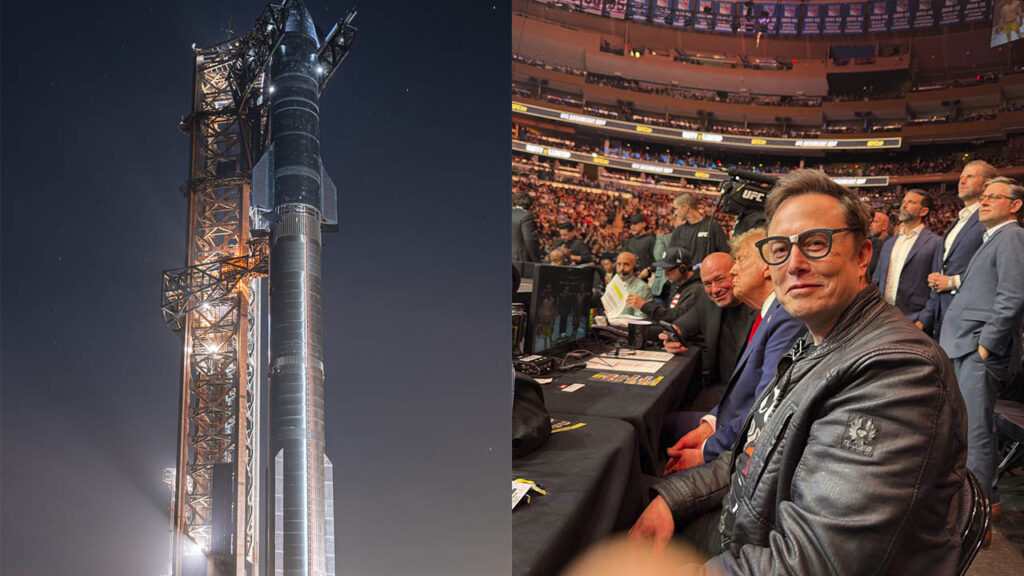SpaceX completes Starship’s sixth test flight, booster splashes down in the ocean instead of tower catch

SpaceX conducted the sixth test flight of its Starship rocket on Tuesday, marking its fourth mission of the year. The uncrewed launch took off from SpaceX’s Starbase facility near Brownsville, Texas, as part of the company’s ongoing efforts to refine the world’s most powerful rocket for future lunar and Mars missions. Starship reached space, completing a near-loop around the Earth before reentering the atmosphere and splashing down in the Indian Ocean during daylight, a first for the rocket.
The Super Heavy booster, which provides the initial thrust for Starship, was originally planned to return and be caught by SpaceX’s launch tower arms. However, during the flight, the booster failed to meet the “commit criteria” for the catch attempt. Instead, it was directed to splash down in the Gulf of Mexico just four minutes into the test flight. The decision highlights the iterative challenges of developing reusable rocket systems.
With each test, SpaceX aims to advance Starship’s capabilities. The sixth flight tested critical systems, including reigniting an engine in space and evaluating the heat shield during atmospheric reentry. The ultimate goal is to create a fully reusable rocket system to lower launch costs and make space exploration more accessible. Upgrades to the booster’s hardware were implemented before this flight, improving redundancy and structural strength.
Starship is both the tallest and most powerful rocket ever built, standing at 397 feet when fully stacked with the Super Heavy booster. The booster, equipped with 33 Raptor engines, generates an incredible 16.7 million pounds of thrust—nearly double the power of NASA’s Space Launch System. Starship itself is 165 feet tall and designed for operation in both atmospheric and space environments, using six Raptor engines fueled by liquid oxygen and liquid methane. A full launch requires over 10 million pounds of propellant.
Among the attendees at the Texas facility was President-elect Donald Trump, who expressed his support for the mission. Before the event, Trump posted on his social media platform, Truth Social:
“I’m heading to the Great State of Texas to watch the launch of the largest object ever to be elevated, not only to Space, but simply by lifting off the ground. Good luck to Elon Musk and the Great Patriots involved in this incredible project!”
https://twitter.com/margomartin/status/1858985380944720355
The Starship rocket plays a critical role in NASA’s Artemis program, which aims to return astronauts to the moon. SpaceX has secured a multimillion-dollar contract to use Starship as a crewed lunar lander, a key component of the agency’s broader space exploration plans.

Challenges and Lessons from Previous Flights
This latest launch follows a dramatic fifth test flight last month, during which the booster narrowly avoided an aborted catch due to a timing issue with one of its subsystems. Despite these challenges, SpaceX continues to improve its systems, demonstrating its commitment to iterative development.
A Vision for the Future
As SpaceX pushes forward, the Starship system is expected to revolutionize space travel by enabling reusable missions to the moon, Mars, and beyond. With support from NASA and a growing number of test flights, SpaceX is steadily advancing toward its ambitious goals of making space accessible for both cargo and human missions.
Below is a video of the launch.





